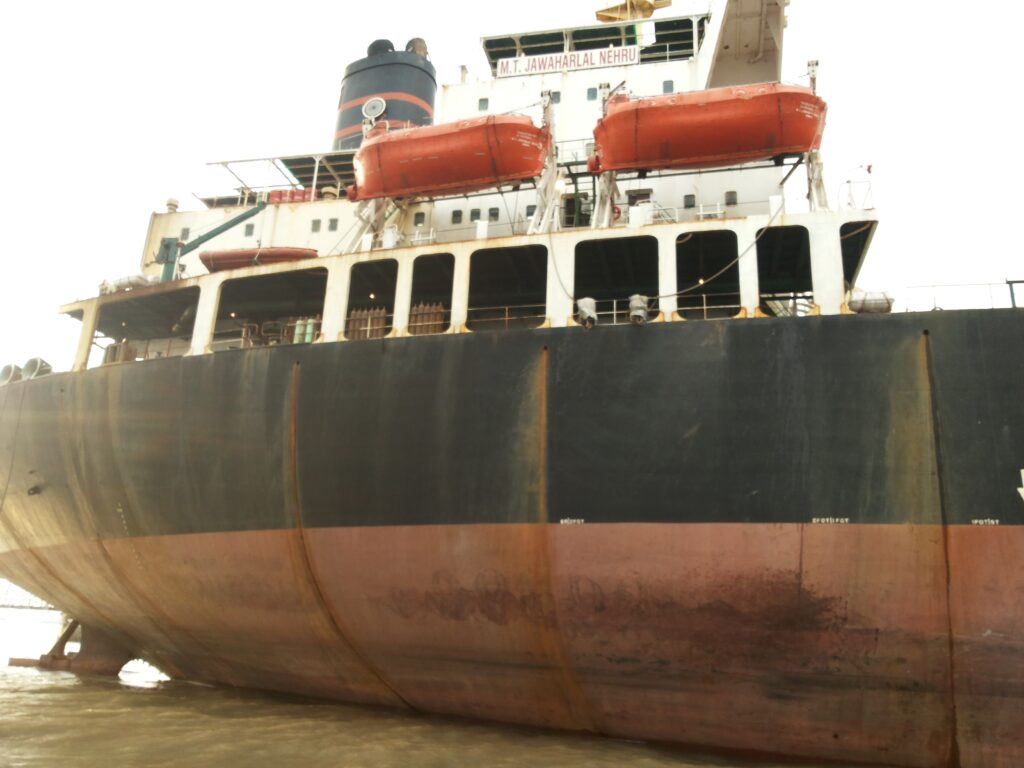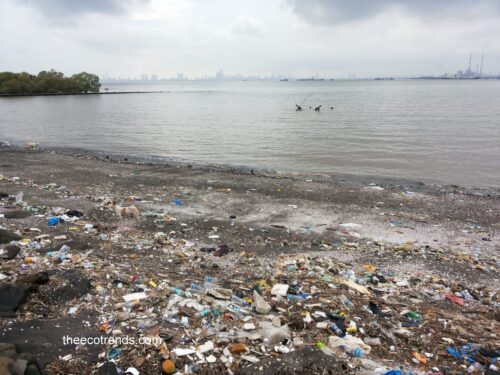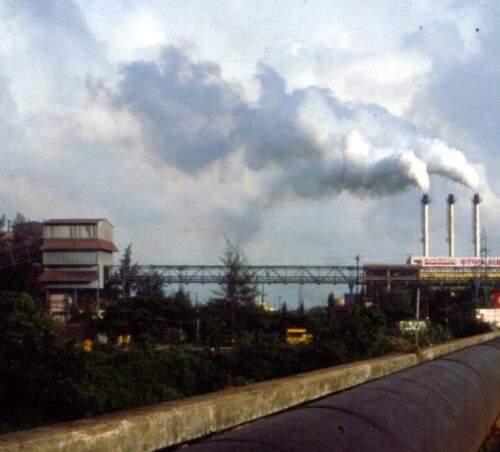The Marine Pollution, as defined by the International Oceanographic Commission (IOC) for United Nations Educational and Scientific Commission, is the introduction by man, directly or indirectly, of substances into the marine environment, resulting in such deleterious effects as harm to living resources, hazards to human health, or hindrance to marine activities and reduction of amenities. Marine Pollution and Coastal Degradation are principally caused by increasing pressure on marine and coastal natural resources, use of oceans for dumping of waste including nuclear waste; industrialization and tourism in coastal areas.
Sources/Causes of Marine Pollution
Sources of Marine Pollution are –
1. Marine Commerce,
2. Industrial Effluents joining seas and oceans,
3. Dumping of radioactive substances into sea water,
4. Sewage brought to the sea by rivers,
5. Offshore oil rigs,
6. Recreational activities,
7. Agricultural pollutants brought to the sea by rivers.
Major Pollutants in sea water and Consequences
The pollutants associated with marine environment are pathogens, sediments, solid wastes, sewage, heat, brine, toxic organic substances, petroleum, nutrients, radioactive materials, acids, bases, torn fishing nets etc. Rivers transport dissolved organic nitrogen to estuaries at a very high rate mainly in Europe and South- East Asia. Nitrogen levels are exacerbated by widespread loss of coastal wetlands, coral reefs and mangrove forests. The elevated nitrogen inputs in marine and coastal areas are causing serious eutrophication in marine waters. It has emerged as a worrying trend not foreseen about three decades ago. Blooms of toxic and undesirable phytoplankton are increasing in frequency, intensity and geographic distribution. According to UNEP (United Nations Environment Programme) severe eutrophication has occurred in several enclosed or semi enclosed seas, including Black Sea.
Human activities such as port dredging, landfill, Coastal dumps of solid wastes, coastal constructions and road building, cutting of coastal forests, beach and reef mining, trampling, anchor and diver damage, tourism and recreation cause alterations in the marine habitats. According to the IUCN-1996, one half of the wetlands and more than half of the mangrove forests have been lost over the past century.
The Oil Spills

The layer of oil spread on the surface of the sea water due to leakage or accidents of oil carrying tankers in the sea water, is called as oil spills. The oil on the surface of the sea water gets spread due to following reasons –
1. Damage caused to oil tankers by accidents,
2. Natural seepage of water,
3. Disposal of used automobile lubricants etc. into sea water
4. Offshore production losses associated with oil refineries.
5. Dramatic increase in the coastal sewage discharge during last three decades.
6. Transport of dissolved inorganic nitrogen by rivers to estuaries. This condition is mainly observed in the Europe and South –East Asia where nitrogen levels are exacerbated by widespread loss of coastal wetlands, coral reefs and mangrove forests.
The oil spread on the sea water acts as an insulating layer between air and water. Due to this, the oxygen of the atmosphere cannot mix with water. The deficiency of dissolved oxygen in water kills varieties of sea animals. The sea birds that catch fish by dipping into sea water become unable to fly due to oiling of their wings.
It is due to frequent oil spills that sea otters, many sea birds, whales and many other species of the marine environment have become endangered. The oil spill damages fisheries and Mari culture, and causes serious economic losses to the local public and the governments.
The pollution in coastal bays, estuaries and wetlands threaten many species of fish inhabiting these places. 260,000 barrels of oil was spilled from oil tanker Exxon Valdez into Alaska’s Prince William Sound in 1989. About 4.4 billion Litres (0.2 billion gallons) of oil was spilled in about 8,539 oil spills in 1999, in and around the waters of the United States




